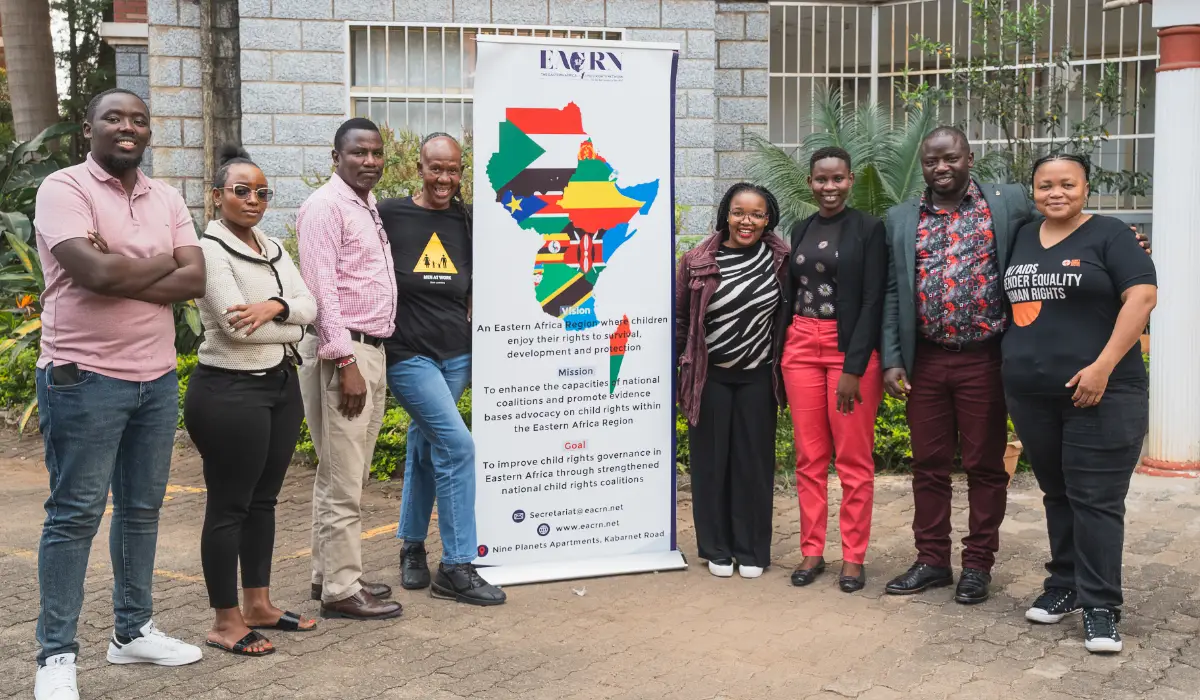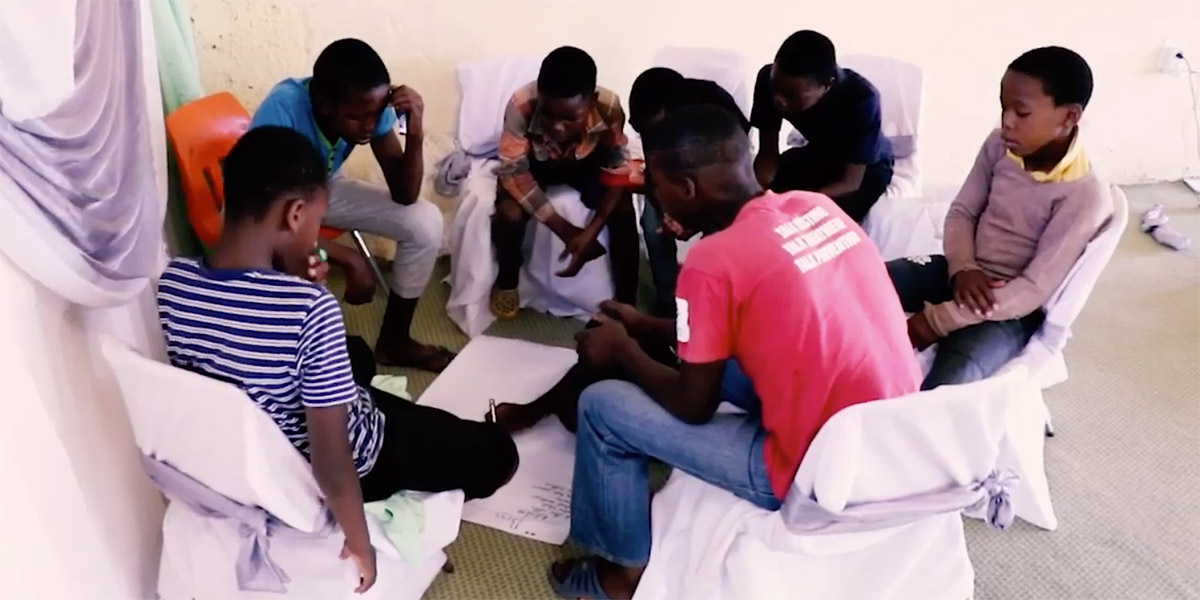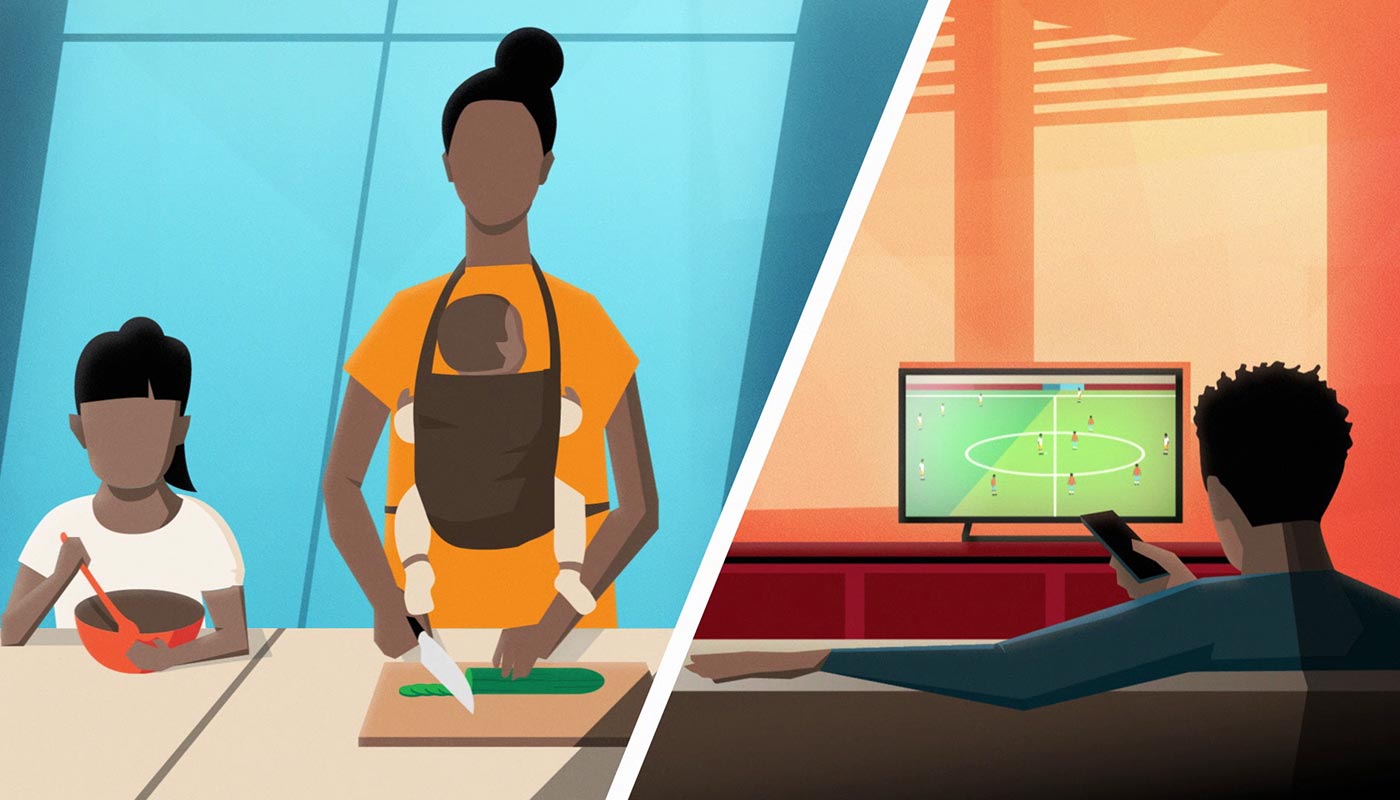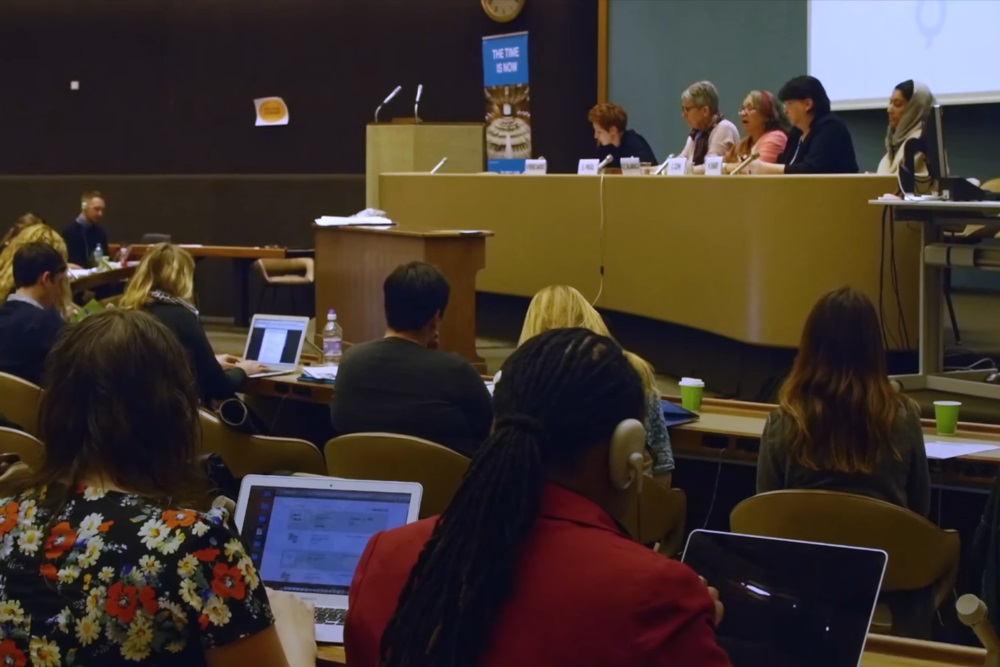Sonke Gender Justice partnered with Save the Children on the SIDA programme to strengthen the capacity of various civil society organisations on implementing Gender Transformative Approaches for children’s rights and parenting. The program worked with CSOs based in Ethiopia, Kenya, Uganda, Zimbabwe, Botswana and South Africa. This video reflects on the implementation process and impact.
Video Type: By our Partners
-
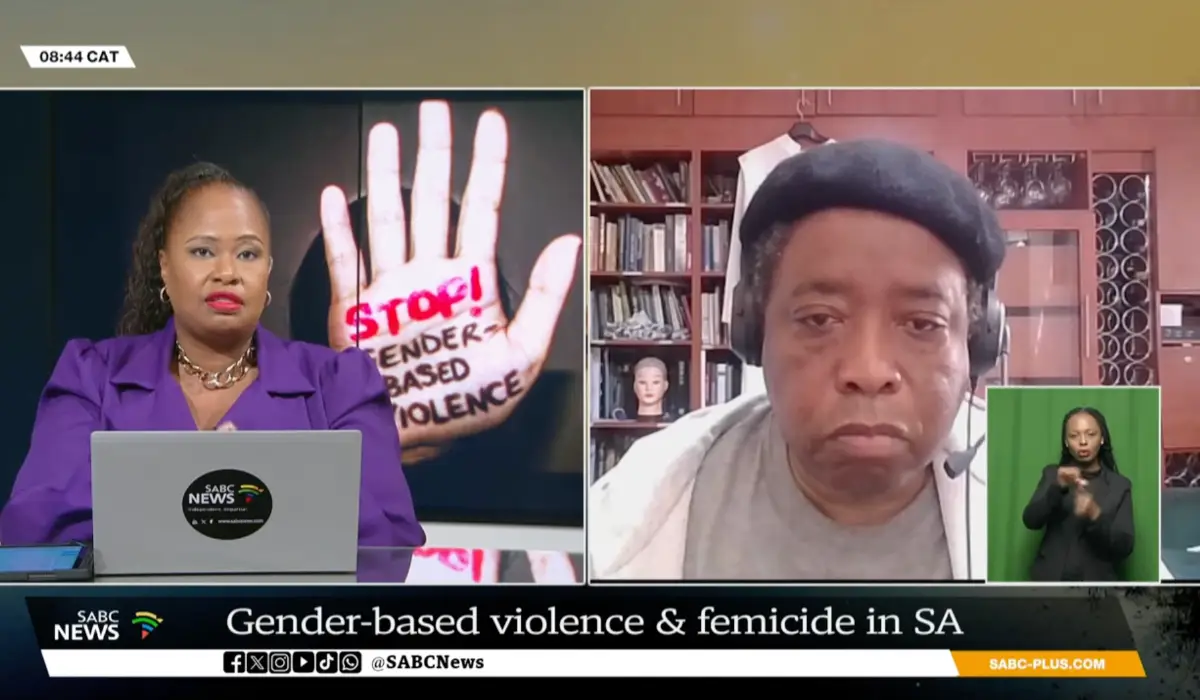
Women’s Month | Men and boys key in fighting gender-based violence and femicide: Bafana Khumalo
Alarming gender-based violence and femicide reported cases continue to be a scourge in South Africa, with women and girls bearing the brunt of the violent crimes. Recently, President Cyril Ramaphosa called for men across the country to take a stand against gender-based violence and femicide by signing a virtual pledge. He also urged all of society to work together to end gender-based violence and called on men who live by positive values to assist other men to mend their conduct and to report instances of abuse and related wrongdoing. SABC Morning Live show took a closer look at the role that men are playing in the fight against gender-based violence and femicide by talking to men who are playing a positive role. Bafana Khumalo, co-executive director of the Sonke Gender Justice, weighed in on the conversation.
-
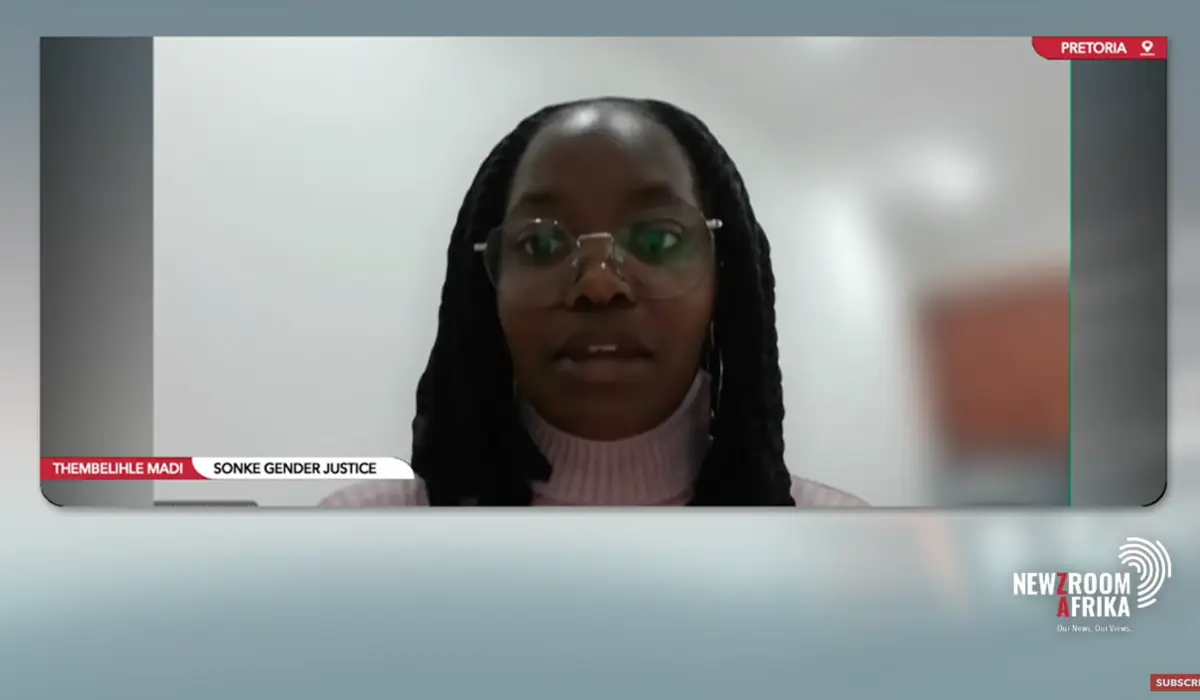
Sexual and Reproductive Health Rights debate
The South African constitution states that everyone has the right to access healthcare services, including reproductive healthcare. This means one has the right to define their sexuality and the right to education, including the right to comprehensive sexuality education. Sonke Gender Justice senior trainer Thembelihle Madi, Soul City Institute CEO Phinah Kodisang, and EFF member of the Central Command Team and Parliament Sharon Letlape discuss this further with Newzroom Afrika.
-
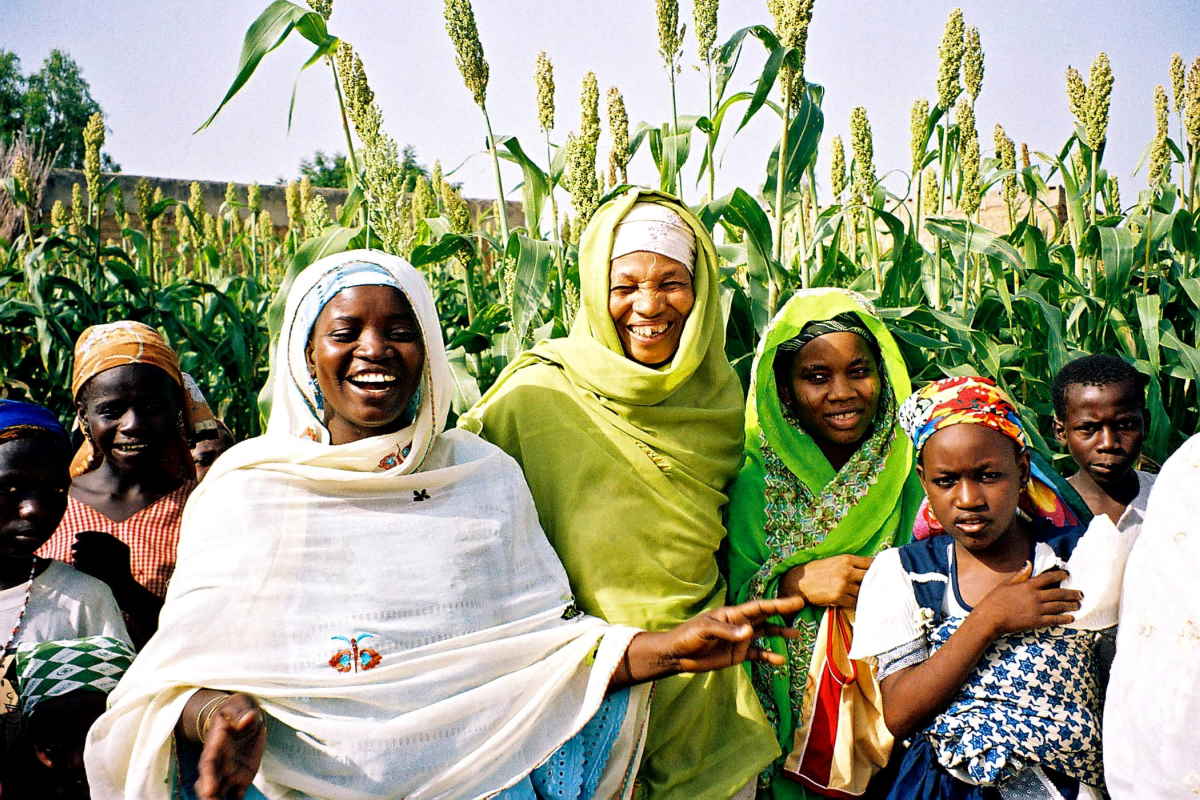
Dealing with gender-based violence in Nigeria
Dr Chris Ugwu, Executive Director of Society for the Improvement of Rural People (SIRP) – Nigeria, the Secretariat of MenEngage Nigeria, appears on Shagalinku TV to speak about the rise in gender-based violence and how to solve it.
-
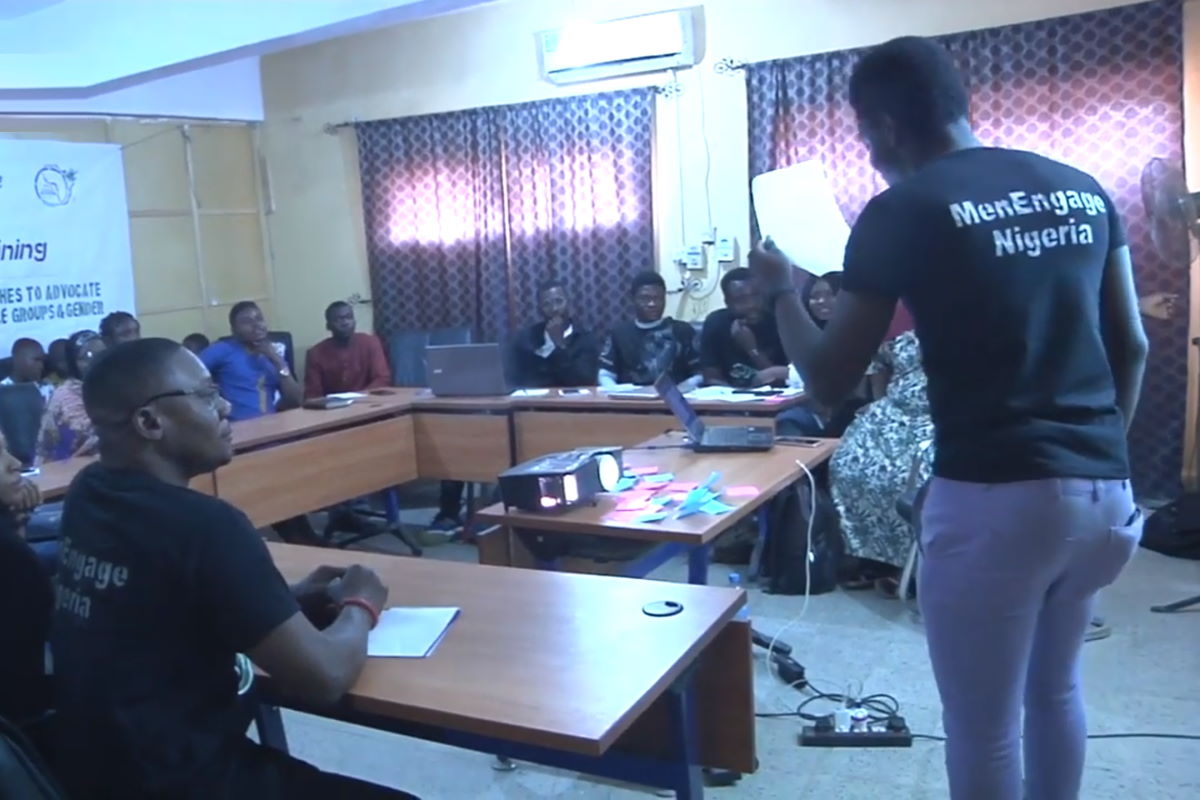
Sensitising boys to promote gender justice in Nigeria
African Focus for Youth Development (AFFYD), a member of MenEngage Nigeria, had a two-day training in February to engage young men in Kano State on how to advocate for women’s rights, rights of vulnerable groups, and gender justice. AFFYD Executive Director, Emmanuel Gabari, said boys and men have an important role to play against gender-based violence. Gabari said he hopes the two-day training would help change the mindsets of young boys and men to make them see girl children and women as part of them.
-
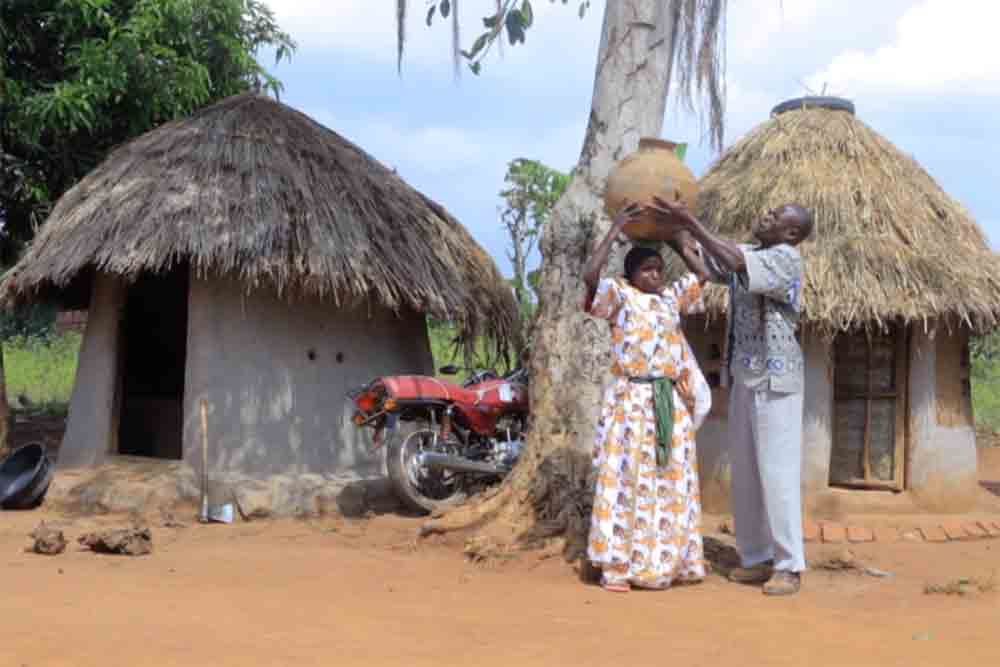
Stopping violence in communities in action
Domestic violence is scarring many families and the violence that characterises many communities and societies is as a result of what happens in our homes. Thus, it is important to identify and address the root causes of violence within families in order to prevent the violence from escalating into our communities. This video shows how Kadama Widows Association, a member of MenEngage Uganda, is working with married couples in Uganda to end domestic violence.
-
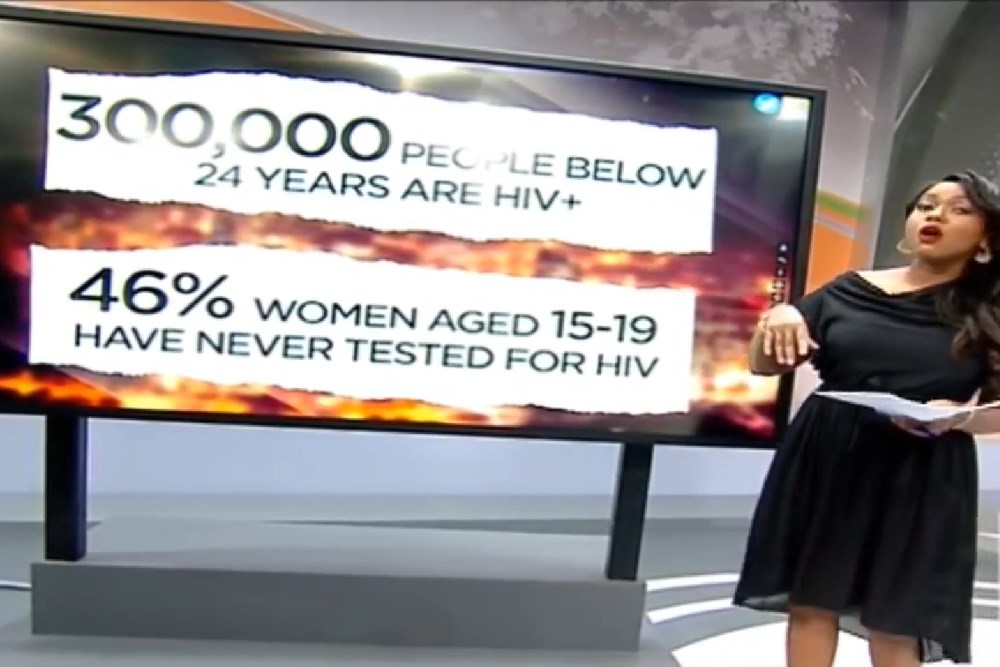
HIV crisis among the youth in Kenya
In the face of HIV, it’s important to “tell the youth that it is okay to delay sexual activity, it’s also important to involve young people when developing HIV programmes for them, and if the youth get friendlier health workers at health facilities, they are more likely to open up about the problems they face.”
That’s the message that Job Akuno, national co-ordinator of Kenya MenEngage (KEMEA), delivered during a panel discussion on Citizen TV, recently.
-
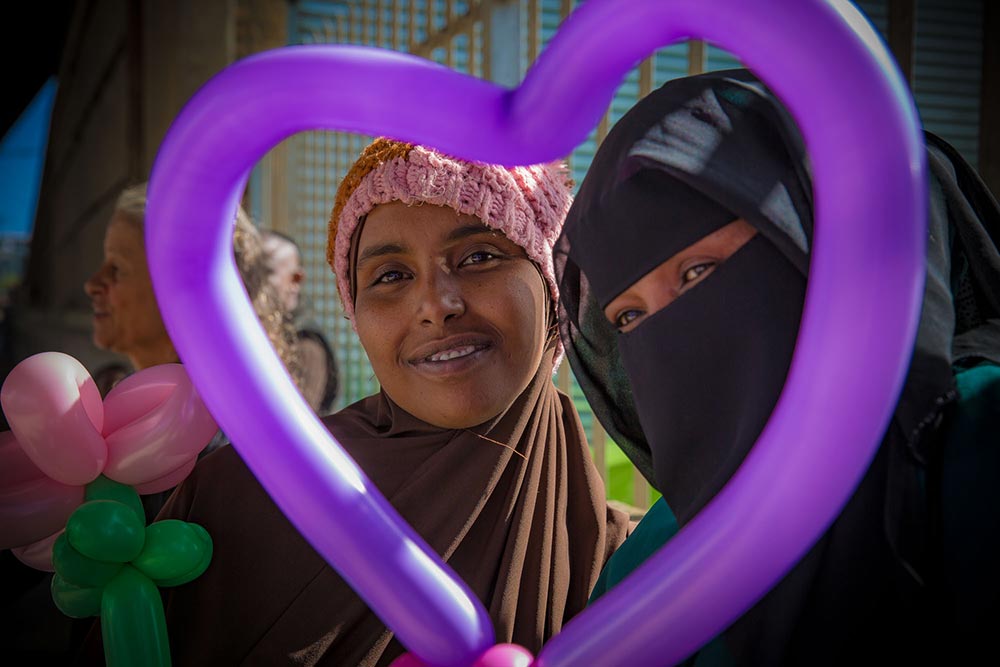
The Department of Happiness Affairs
On Friday 6 April 2018, Sonke Gender Justice, together with various civil society partners, will stage a creative activism event – “The Department of Happiness Affairs”, based on the principles of The Theatre of the Oppressed.1 Refugees and asylum seekers – some of the most marginalised people in South Africa – often face discrimination, inefficiencies and major administrative burdens when applying or renewing their permits at the Department of Home Affairs. This is particularly true at Customs House, Cape Town.
The closure of important services at the Cape Town Refugee Reception Office (RRO) in 2012 has forced asylum seekers to travel vast distances and at great costs – financial and emotional – every 1-6 months to get their papers renewed. The courts have ordered that this needs to change, but Home Affairs has ignored some of these orders.2
In an effort to bring more attention and colour to the dust and despair that characterise the conditions at Customs House where Home Affairs is currently housing its limited services, civil society will be hosting the Department of Happiness Affairs (full title “Department of Happiness Affairs and Joyful Application for Life Documents and Recreation for the Greater Good”). It intends to show the Department of Home Affairs what services to migrants could look like – a welcoming, empathetic and receptive space, open to all asylum seekers and refugees who wish to apply for documentation in South Africa.
-
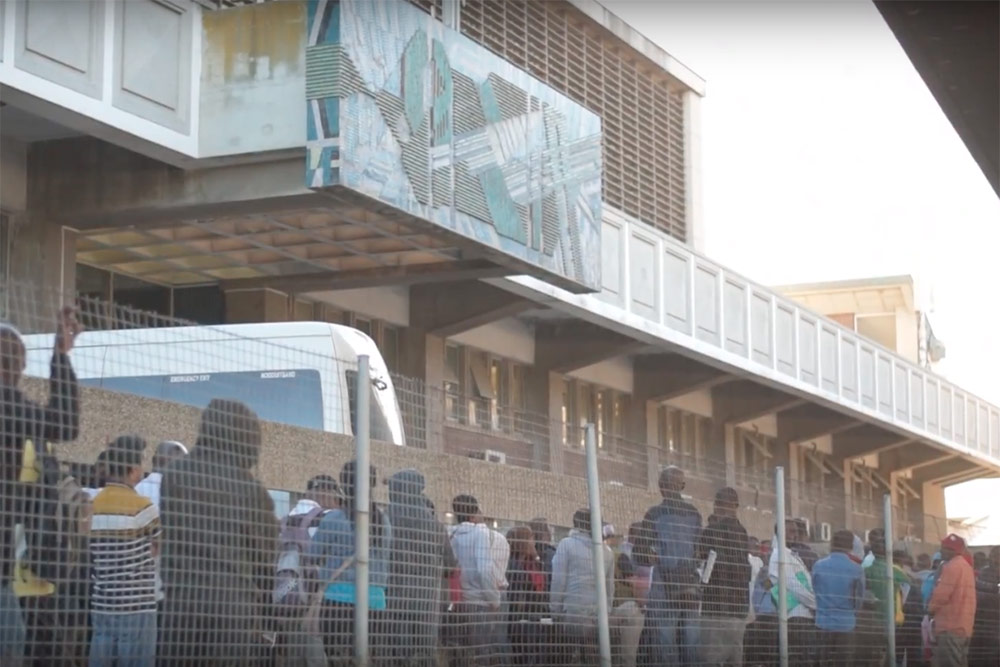
Mariam’s story #OpenTheRRO
The closure of Cape Town’s Refugee Reception Office in 2012 has had a huge impact on asylum seekers in Cape Town.
Like Mariam, who comes from Somalia. Her mother was killed by Islamist militant group, Al-Shabab and she fled to Cape Town two years ago to join her sister who suffers from a mental illness. Every month Mariam must travel to Pretoria to renew her asylum seeker permit. She spends R2500 to travel every month. Money she simply cannot afford.
Sonke and civil society partners are calling on the Department of Home Affairs to #OpenTheRRO.
Read more here.
-
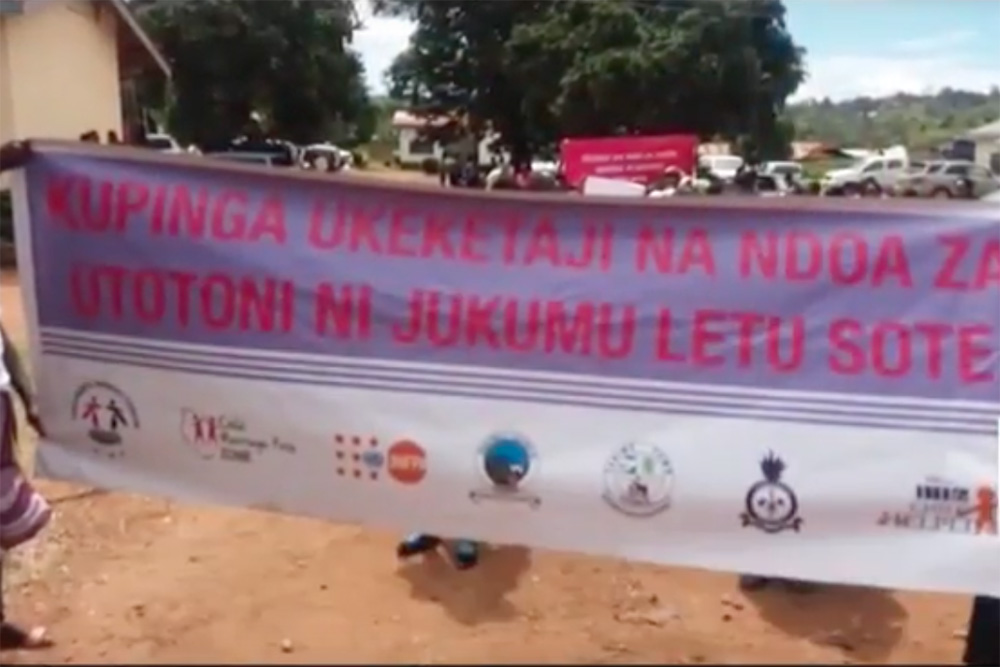
HAKI YA BINTI – project mobilising action to safeguard rights of girls in Tanzania
This documentary showcases “Haki Ya Binti”, a project to mobilise action to safeguard the rights of girls and young mothers in Tanzania. The objective of the project is to combat all forms of gender-based violence (GBV), including female genital mutilation (FGM), child marriage and teen pregnancies, perpetrated against girls, especially those living in rural areas.
Haki Ya Binti is a project run by our partners in Tanzania, Children’s Dignity Forum (CDF), the Secretariat for MenEngage Tanzania. The documentary showcases the work of the project over a two-year period – 2016 to 2018 – in the five wards of Manga, Susuni, Matongo, Mwema and Nkenda in Tarime District.
-
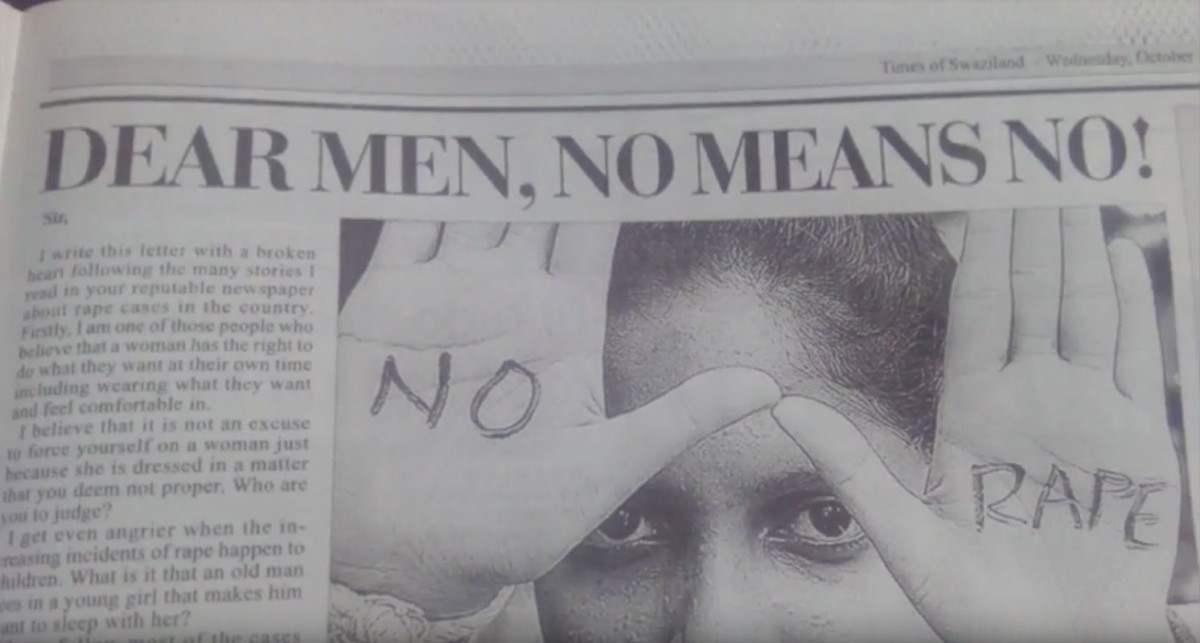
Emachawe Asekhaya
This video is part of the Emachawe Asekhaya campaign which has been devised by KwakhaIndvodza, a member of MenEngage Swaziland. Kwakha Indvodza seeks to reduce the incidence of gender-based violence and HIV through interrogating and redefining masculinity and believes that by celebrating positive male role models we can address the toxic image of masculinity which is a well-documented driver of increased HIV incidence, socio-cultural and socio economic barriers to development in the patriarchal Swazi context.
Working in close collaboration with local partners such as Ministry of Health, NERCHA and Men Engage Swaziland partners as well as regional partners including Sonke Gender Justice and Men Engage Africa, Kwakha Indvodza believes the Emachawe Asekhaya campaign will contribute to the national targets of reduced gender-based violence and HIV incidence rates, as well as advocate for effective couple communication, family-based health seeking behaviour and male-friendly health systems and services.
-
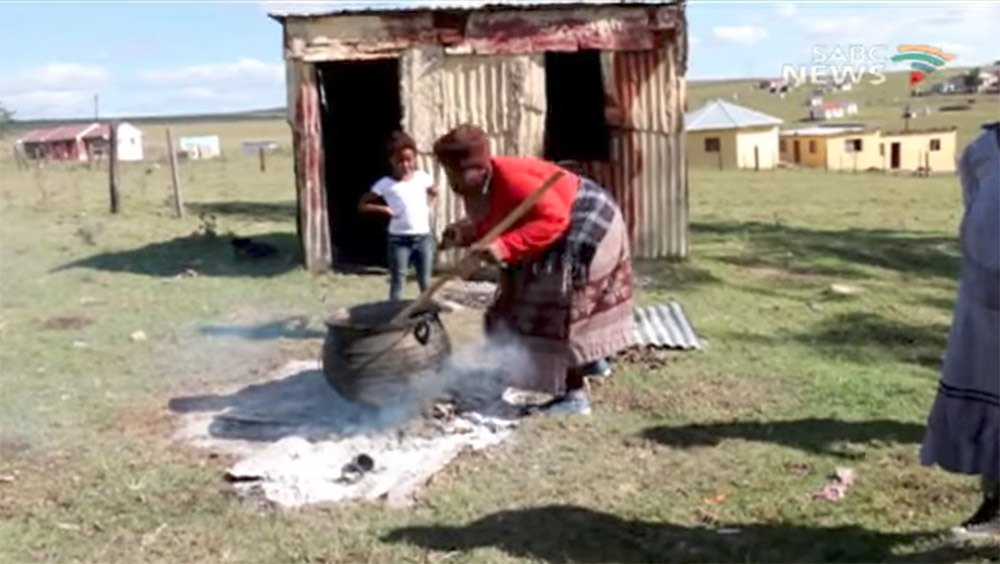
Cutting Edge: Former mine workers seek compensation for deadly disease
Cutting Edge explores the human toll of South Africa’s gold mining industry. Thousands of mineworkers sacrifice their health and well-being when they return home from the gold mines penniless and sick.
The former miners have made history this year when a landmark high court decision certified South Africa’s first ever class action lawsuit, paving the way for sick former gold mine workers to seek compensation from the entire gold mining industry.
-

Special Assignment: The human toll of South Africa’s gold mining industry
The human toll of South Africa’s gold mining industry is laid bare in this heart-wrenching Special Assignment documentary. Thousands of former mineworkers return from the goldfields – penniless and broken. Sick with an incurable lung disease, the former miners made history last year when a landmark high court decision certified South Africa’s first ever class action, paving the way for sick former goldmine workers to sue the entire gold mining industry for compensation. But the mining companies are now challenging this before the Supreme Court of Appeal – while time runs out for the sick men and their desperate families. This 30-minute documentary brings to light the moving stories of the wives and daughters who are left with the burden of caring for these sick men.
-
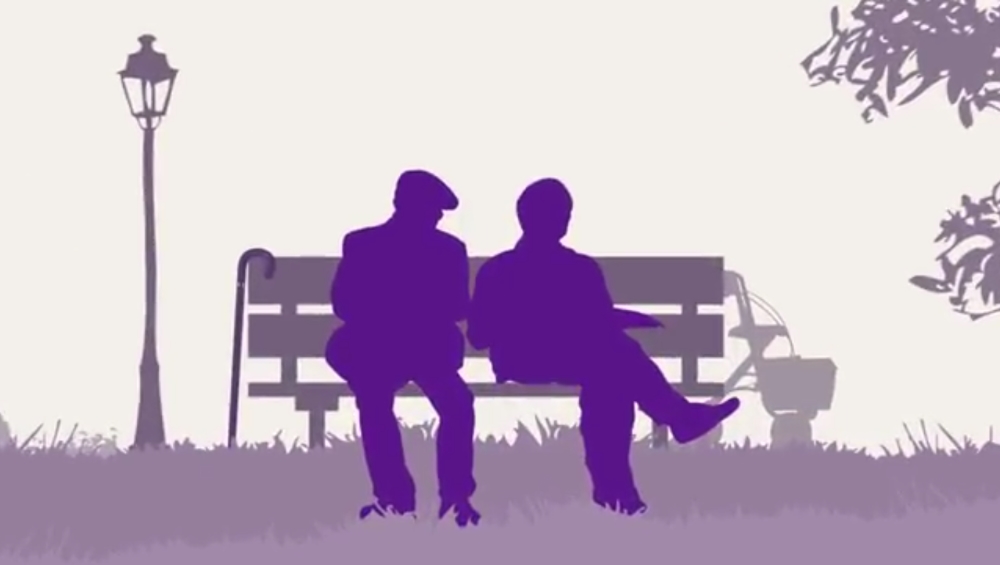
Raising boys to be men who care
Watch this two-minute animation to learn how you can start reimagining a world free from gender-based violence, using lessons from the MenCare+ program. The film was produced by Rutgers and Promundo, with support from the Ministry of Foreign Affairs of the Netherlands. Learn more about MenCare: www.men-care.org
-
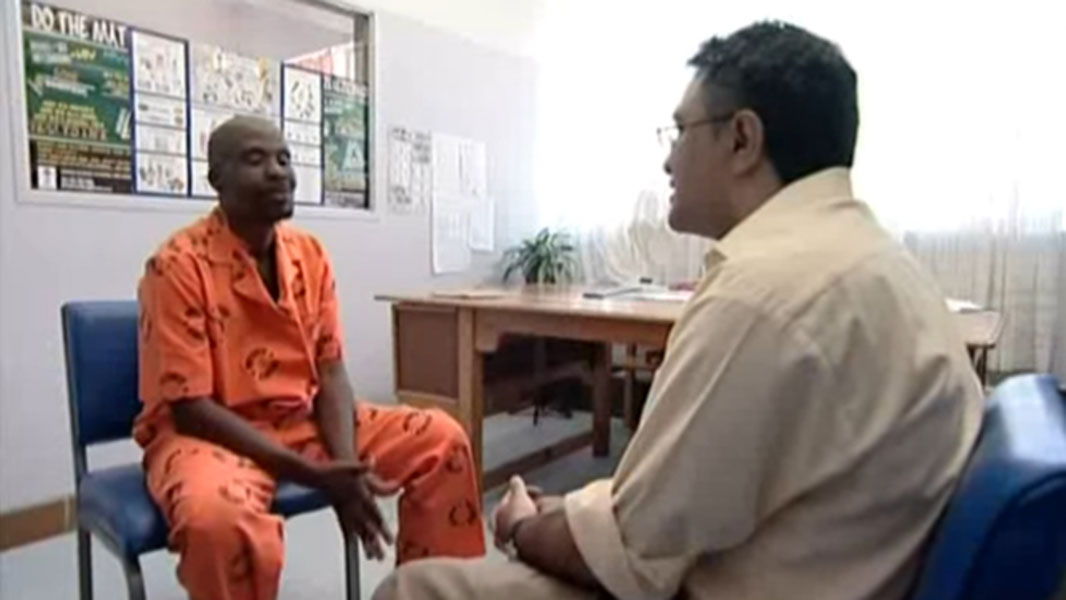
Law and freedom
Part 1 : who was Mrs. Komani?
One of the most important gains of the first ten years of democracy in South Africa has been the legal revolution brought about by the Constitutional Court, bringing to light the people who made possible the legal cases which have dramatically affected the lives of all South Africans. Landmark judgments included in part 1 are: the abolition of the death penalty and the case which led to the decriminalization of sodomy and the acknowledgement of the equality of gay and lesbian people. These judgments stand in contrast to the legal execution, harassment and persecution of apartheid era law.
However, even under apartheid, as human rights lawyer Geoff Budlender explains, “law was a limit on power”. One such case involved Mr. and Mrs Komani – a case in 1980 which led to the collapse of the hated Pass Laws. In 2005, we also celebrate the 25th anniversary of their remarkable legal victory which shook one of the pillars of apartheid.
Part 2: “A Nice Country!”
We meet courageous women and men who have used the legal space provided by the Constitution to build democracy and a better life for all. First, we meet Irene Grootboom whose struggle for housing culminated in a case before the Constitutional Court which is a landmark in the establishment of socio economic rights. In the case of Ngxuza and others v the Eastern Cape Provincial Government, we meet the Meltafas who even on the new democratic order had to challenge abuse of power when their grants were unlawfully withdrawn. A nice Country explores the case of the Treatment Action Campaign for the use of antiretroviral to prevent mother to child transmission of HIV. In this personal reading of the “Nevirapine case”, Zackie pays tribute to TAC members who used the Constitution to achieve access to life saving treatment – ensuring that we have, as one member comments, ” A nice country!”.
-

FGM in Tarime
Female genital mutilation (FGM) affects 15% of women in Tanzania. In the district of Tarime more than 50% of women are victims of this inhumane brutality – that is about 5 in 10 women. This documentary by our partners, child marriage, a non-governmental, non-partisan and non-profit-making children’s rights organisation that acts as the Secretariat of MenEngage Tanzania, shows the courageous women and men standing up and fighting against FGM in the east African country.
-
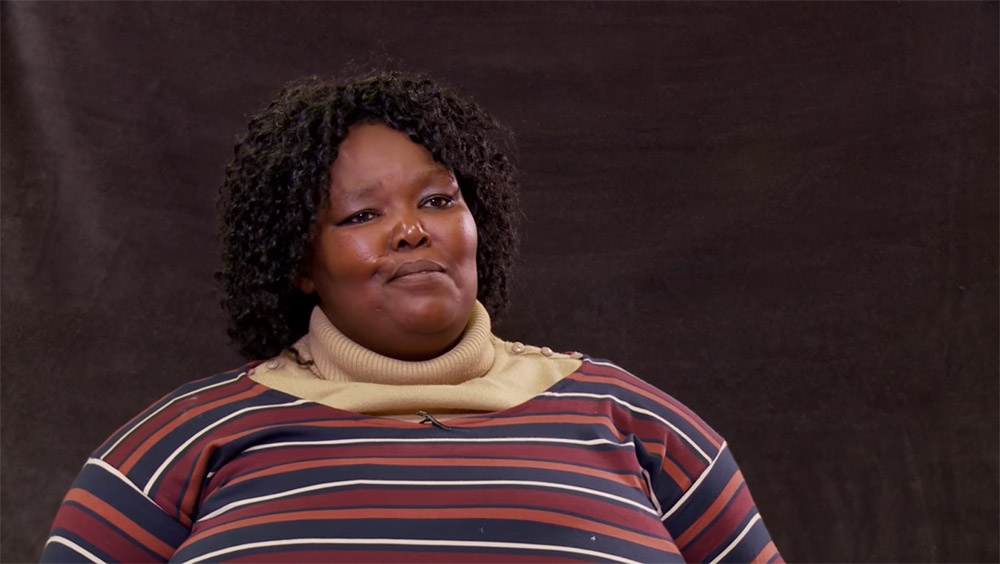
Ordinary people, extraordinary laws
Female sex workers in South Africa provide for an average of 4 adults and/or child dependants.
Less than a third of female sex workers have permanent partners. This places a large responsibility on them to provide for their dependants as well as themselves.
Criminal Law makes sex workers vulnerable because what they do is considered illegal and renders them powerless. Sex workers experience high levels of abuse, rape and exploitation by unscrupulous police and security officers.
-
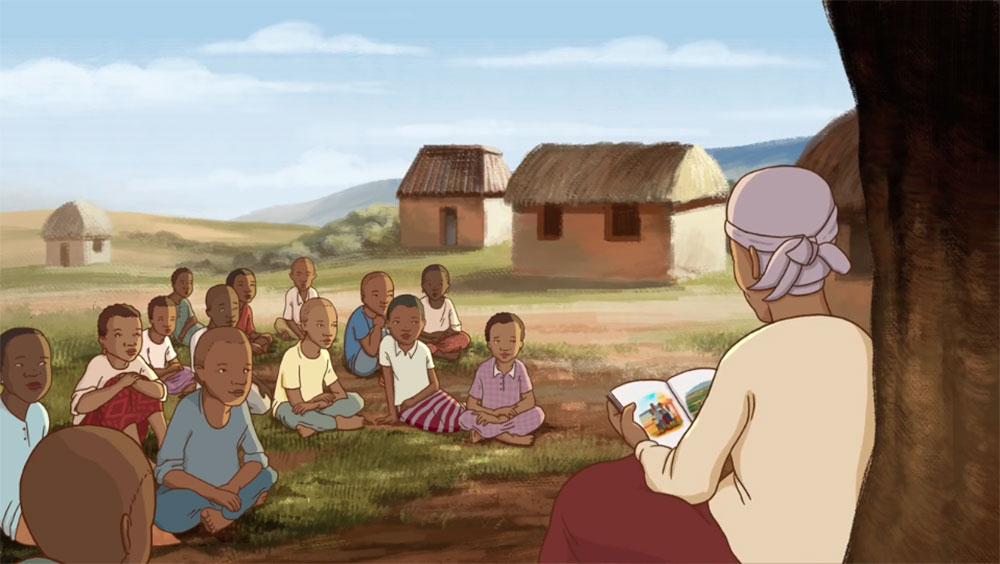
The true story of Ghati and Rhobi
“The True Story of Ghati and Rhobi” is a short animated film aimed at raising awareness of female genital mutilation (FGM). It tells the inspirational story of two girls, Ghati and Rhobi, resisting their community’s practice of FGM. They show courage by saying no to a practice that they heard would be painful and that some girls die from. With the help of community elders, they change the way their community treats a girl’s transition into womanhood by ending the practice. The video was developed by FORWARD and Animage Films, in partnership with Children’s Dignity Forum (CDF), the Secretariat for the MenEngage Africa network in Tanzania.
-
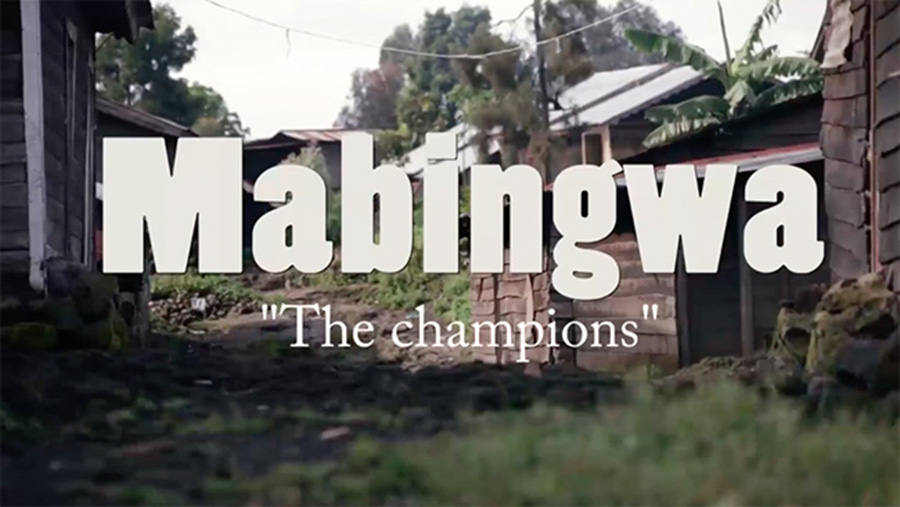
Mabingwa “The Champions”
Mabingwa “The Champions”, is a movie of change showing work done to promote gender equality, positive fatherhood and non-violence in the Democratic Republic of Congo. The movie was commissioned by the Congo Men’s Network, one of 17 alliances in the MenEngage Africa network, which Sonke co-ordinates in our work with men and boys to foster gender equality and non-violence.
-
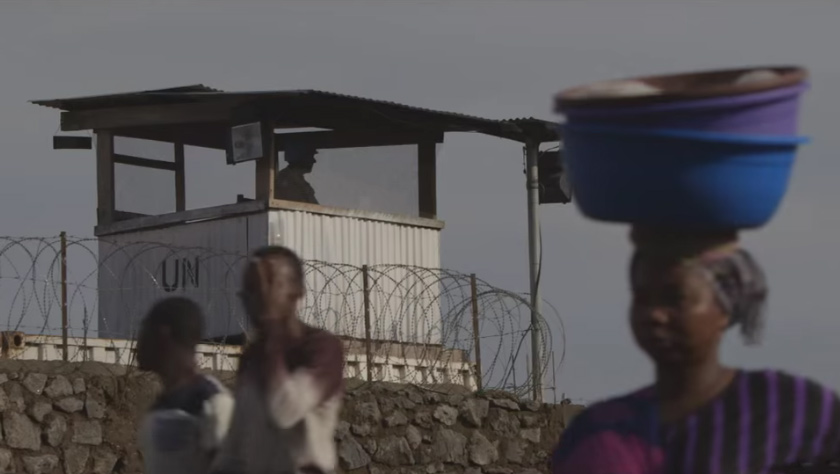
Living Peace: The story of Abby and Kyalu
Promundo’s latest short film, “Living Peace: The Story of Abby and Kyalu“, follows a couple who were abducted by rebels in eastern Democratci Republic of Congo (DRC) in 2008. Abby was forced into hard labour and his wife, Kalyu, was raped and had a child as a result. Once they returned home, Abby expelled Kyalu. The film explores their recovery and tells their journey as part of an initiative called Living Peace, led by Promundo. The film will be launched in South Africa at the 4th International Sexual Violence Research Initiative Forum, which will be held from the 15th – 17th of September 2015.
